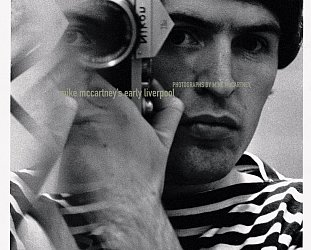Graham Reid | | 1 min read

In a recent column I said that when the histories of jazz last century are written one name will loom unnaturally large, that of trumpeter/composer Wynton Marsalis.
I speculated this undeniably talented, articulate and media-savvy musician would either be hailed as the one who saved jazz from disappearing into arthouse obscurity or derided as a man who marginalised otherwise important styles of jazz just because he didn't especially like them.
This 200-page paperback by respected American jazz writer Howard Mandel has already proved me depressingly accurate.
A 1984 Marsalis interview with Mandel for Down Beat magazine - when Marsalis was 22 - is given alarming prominence. It takes precedence at the start; halfway through, another section of it is dropped in, and at the end is yet another segment. It is as if opinions about this music must be bounced off the Marsalis sounding board.
To be fair it's an interesting enough interview (although inevitably Marsalis has changed some of his views in the 16 years since) but it skews what is an otherwise intelligent if minor addition to any music library.
Working from the premise that the Sixties were pivotal for jazz - it looked both back and forward in a way it hadn't done previously - Mandel offers a potted history of jazz since. He interpolates the story with distilled biographies of important innovators.
He draws on his own interviews with musicians of the Sixties avant-garde (Don Pullen, members of the Art Ensemble of Chicago) and chronologically follows the development of jazz through its fusion with rock (guitarists John McLaughlin and George Benson profiled) and also addresses often overlooked but significant figures such as pianist composer Anthony Davis and flautist James Newton. He also turns attention on the hip New York downtown scene of the Eighties and Nineties. All good stuff.
Mandel also looks at how jazz has been marketed by including comments from record-company shapeshifters Dr George Butler (of Columbia, who signed Marsalis), Richard Sedel (Verve and GRP) and Bruce Lundvall (who has moved through CBS, Elektra Musician and Blue Note labels).
The subtext of their comments is that concepts such as the Young Lions (the imprimatur given to a group of younger musicians in the early Eighties, which included Marsalis) gives the media something to latch on to, and in it find its own heroes. Like whom, we might wonder.
Maybe Mandel didn't get the irony - but the media-savvy Marsalis casts too large a shadow over a slim book.
There is plenty more on jazz at Elsewhere here.





post a comment